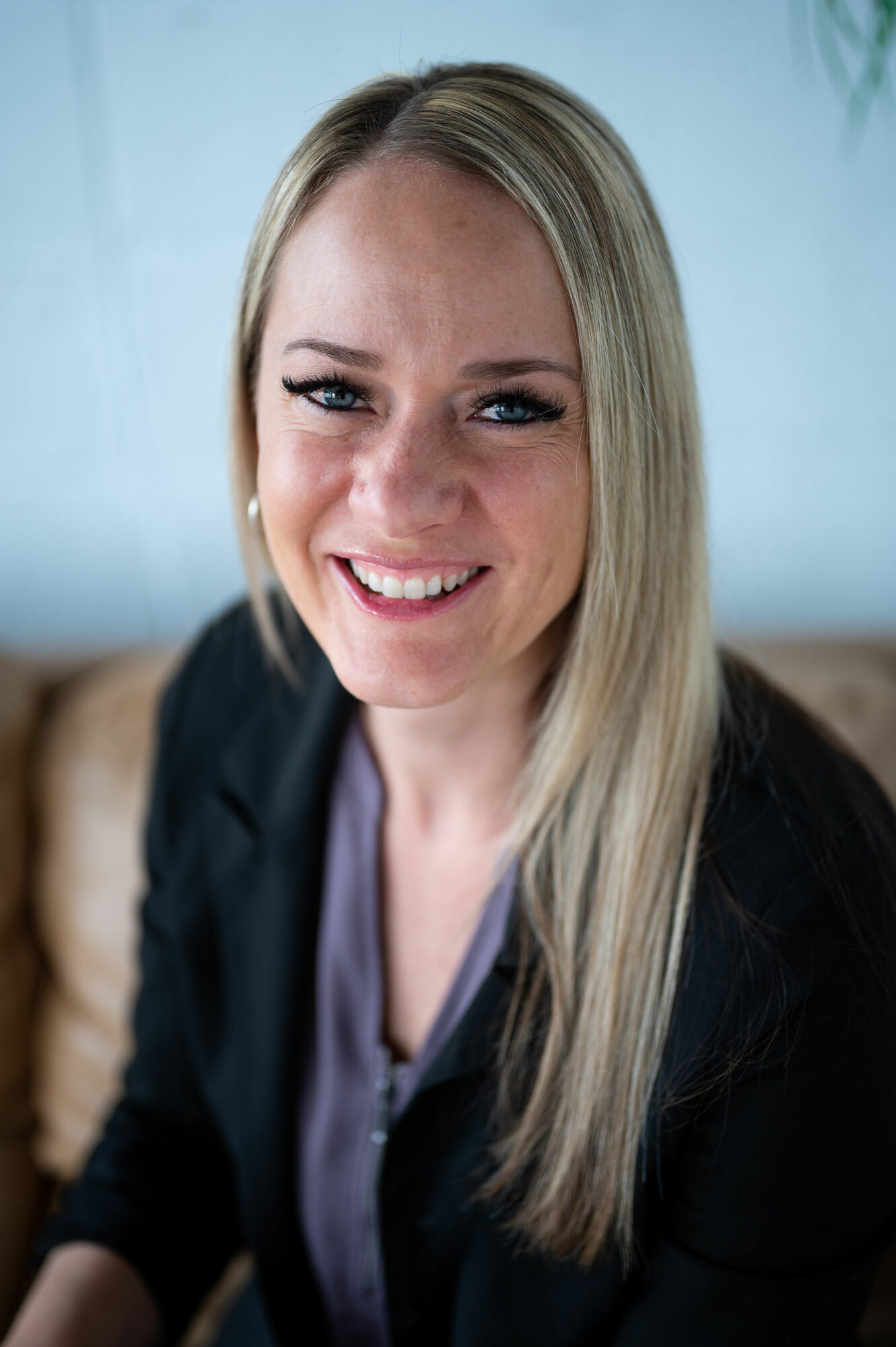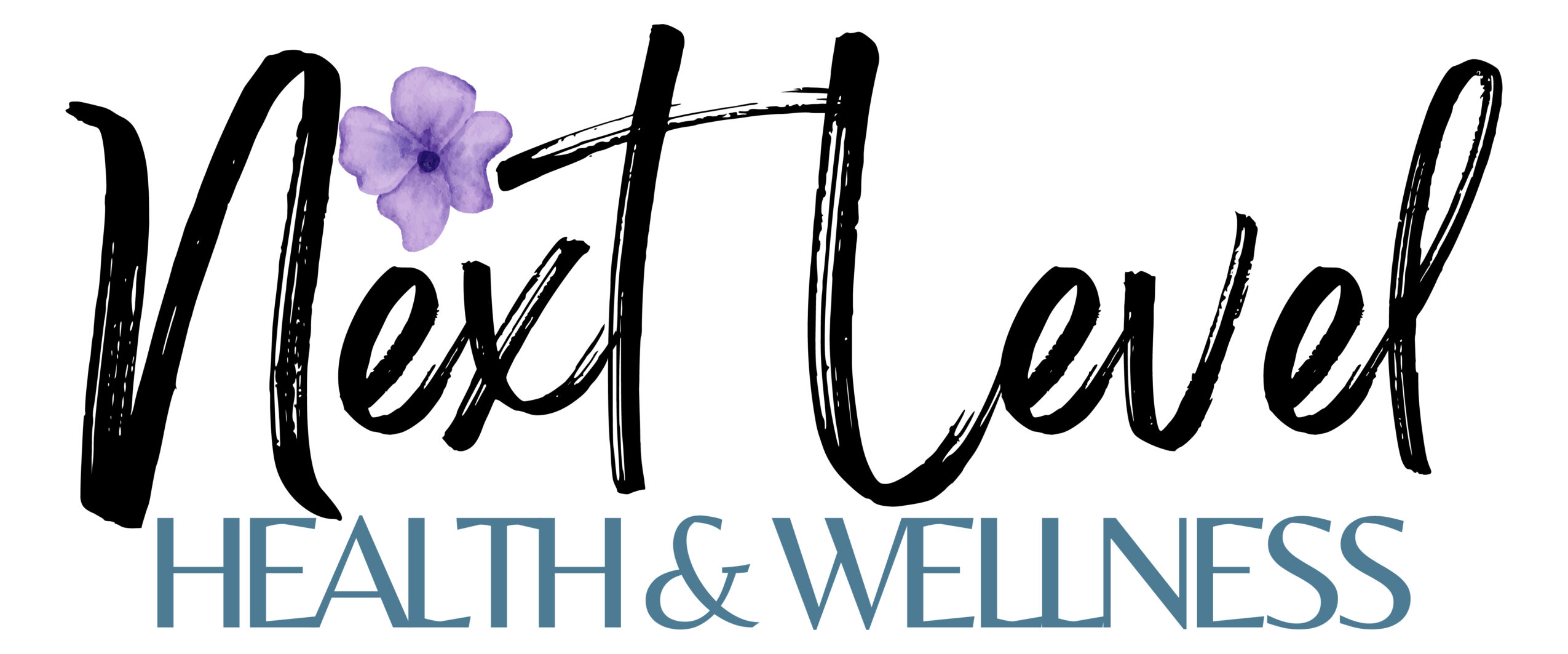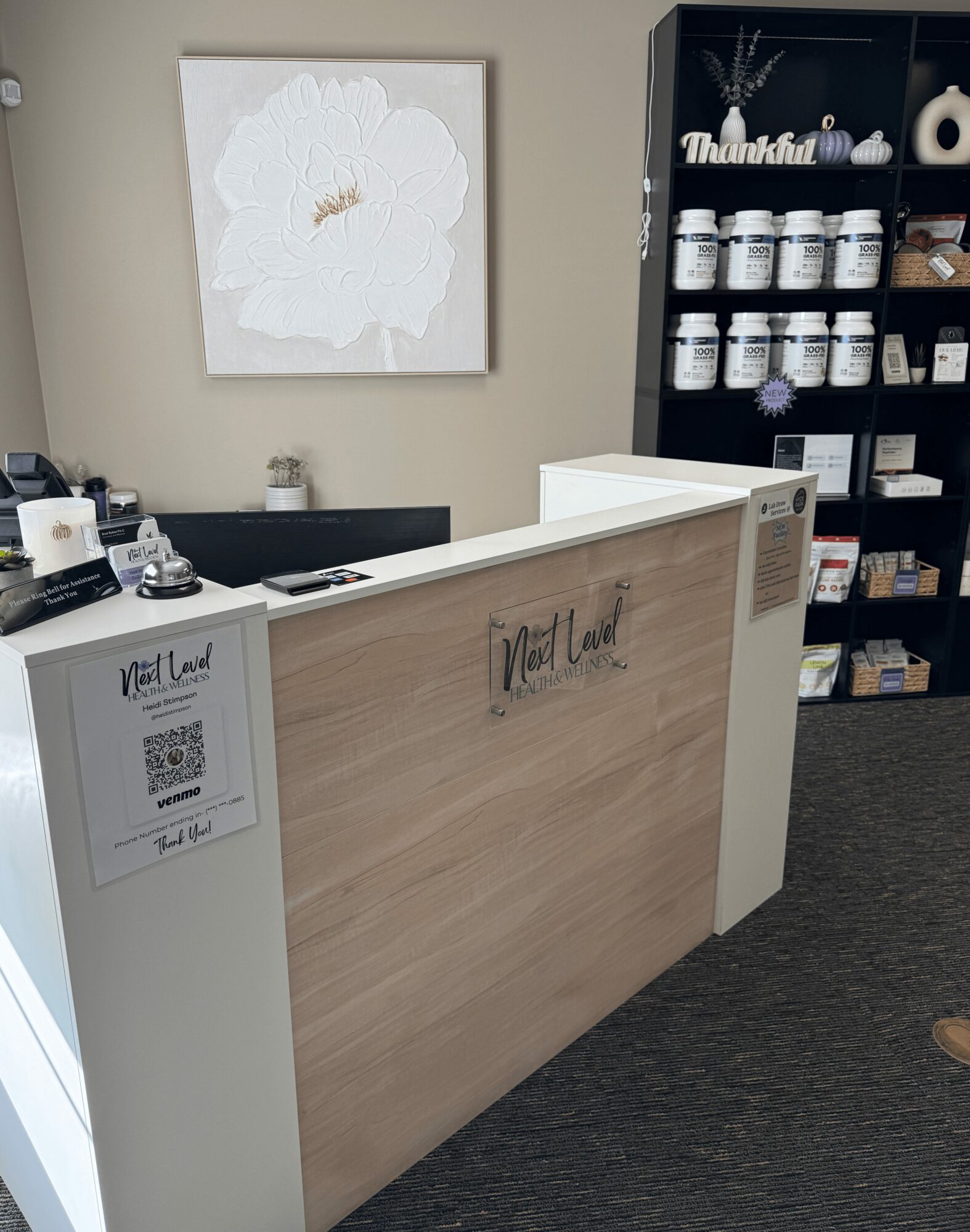

Today we’d like to introduce you to Heidi Stimpson.
Heidi, we appreciate you taking the time to share your story with us today. Where does your story begin?
I’ve always been someone who pays attention to the inner workings of things: bodies, minds, systems, patterns. Even as a kid, I was trying to understand why people behaved the way they did or why certain things made us feel better or worse. That curiosity shaped everything that came after.
Part of that curiosity came from living in a body that didn’t always make sense. I developed digestive issues young, was eventually diagnosed with IBS, and later navigated hormonal and stress-related symptoms that didn’t fit neatly into explanations. I know what it feels like to be overwhelmed by symptoms that don’t make sense, to sit in a doctor’s office and feel unheard, or to sense that something is off even when you’re told it’s all normal. Those experiences made me more compassionate, more patient, and more attuned to the quieter details people often don’t have the space to articulate.
My professional path began with wellness coaching, intermittent at first, never a full-time pursuit. I loved helping people make changes, but I quickly realized that most people already knew the basics: whole foods matter, sleep matters, stress matters. The real question was, If people know this, why is making change so hard? That disconnect pushed me deeper into family science and psychology, where I learned how relationships, beliefs, stress patterns, and emotional histories influence health long before nutrition even enters the picture.
And while psychology helped me understand the human experience, my fascination with the body itself had been there from the beginning. I’ve always been drawn to physiology, not from a fitness or physique perspective, but from a deep desire to understand how the body actually works. How do cells communicate? How do nutrients drive biochemical pathways? How does the body adapt, compensate, or break down? That lifelong curiosity led me back to formal study: a master’s degree in Human Nutrition and Functional Medicine, and advanced training through the Institute for Functional Medicine.
I also pursued postgraduate gut-specialty training under Dr. Jason Hawrelak through the Microbiome Restoration Center in Australia. He’s internationally regarded as “the expert to the experts.” His evidence-based approach to the microbiome was a major turning point. It revealed how much gut-health information in the wellness world is driven by trends, supplement marketing, and oversimplified protocols. Learning from him reshaped how I approach gut health and strengthened my commitment to working from validated science rather than hype.
Today, I run a functional nutrition practice focused on gut health, hormones, and the gut–brain–immune axis. I blend detailed lab interpretation with an individualized, relational approach. For me, it’s never just about protocols, it’s about the person, their story, their stress patterns, and the environment shaping their physiology.
If there’s a thread running through my journey, it’s depth. I’m not motivated by trends or quick fixes. I care about what’s scientifically grounded and what truly helps people feel better. I’m a quiet, intuitive observer by nature, and my work reflects that: deep listening, careful assessment, and helping people reconnect with their body’s intelligence.
Alright, so let’s dig a little deeper into the story – has it been an easy path overall and if not, what were the challenges you’ve had to overcome?
My path hasn’t been linear. It’s been what I call a meandering shaped by curiosity, lived experience, and the lessons that arrive when you least expect them.
One challenge has been realizing that the wellness world often rewards certainty, branding, and trendy protocols. None of that fits who I am. I’m wired for nuance, honest analysis, and depth, which meant taking the long route, studying psychology, behavior, physiology, and the ways those systems interact in real people’s lives.
Personally, I’ve moved through deep loss, burnout, and betrayal. Losing my cousin, who encouraged me to obtain further education and was meant to be my business partner, was especially difficult. She was going to cover the medical side of our work, and we had plans. Her loss created an emotional and professional vacancy that shaped me in unexpected ways. Grief taught me how to sit with people in their uncertainty. It gave me a different kind of presence, one that doesn’t rush healing or impose answers, but listens for the deeper story underneath the symptoms.
Another challenge was reconciling academic training with real life. People aren’t case studies; they’re layered, emotional, stressed, hopeful, and complex. Learning to work at that intersection took time, humility, and a willingness to let go of anything that didn’t feel true.
So no, it hasn’t been smooth. But the detours became the education, the setbacks brought clarity, and the curiosity shaped my entire approach: slower, deeper, more human, and far more aligned than anything I could have planned.
Thanks for sharing that. So, maybe next you can tell us a bit more about your work?
I’m a functional nutritionist working at the intersection of physiology, psychology, and lived experience. I specialize in gut health and hormones, but what I really do is help people understand why their body is reacting the way it is and what it’s been trying to communicate.
Much of my work begins with advanced lab interpretation depending on what a client needs: full thyroid panels, microbiome analysis, metabolic markers, nutrient status, and inflammatory patterns. I like details, I like mechanisms, and I like giving people clarity after years of being told their symptoms are a “normal” part of aging.
But the science is just one layer. I also focus on stress patterns, emotional history, resilience, personality, and environment. In my practice, there’s no separation between the body and the story it carries.
What sets my work apart is the level of personalization and depth. I don’t believe in recommending a supplement for every out-of-range marker, which is common in the wellness world. I go deep into patterns, how each marker influences the next, how systems communicate, and what the physiology is actually trying to express. My goal is to trace imbalances back to their origin and support the body from the ground up, not overwhelm it with protocols.
My postgraduate microbiome training reinforced this approach. Dr. Hawrelak teaches with precision and strict evidence, and learning from him helped me step away from trend-driven protocols, supplement marketing, and oversimplified solutions. It taught me to be more discerning and more respectful of the body’s complexity.
Clients often tell me that working with me feels calming, that they finally feel understood, not rushed. I care deeply about creating a space where people can breathe again, ask real questions, and feel supported as a whole human being, not just a collection of symptoms. That’s the part of my work I’m most proud of.
Ultimately, my practice blends rigorous science with human nuance: biochemical, emotional, and environmental. It’s quiet, steady, and rooted in integrity. I’ve built something I believe in, and something people feel safe inside.
We’d be interested to hear your thoughts on luck and what role, if any, you feel it’s played for you?
Luck has played a strange role in my life, both good and bad, and I think both sides shaped me in ways that matter.
The “bad luck” moments like abrupt shifts, loss, and betrayal forced me to grow emotionally and professionally. Losing my cousin changed my trajectory. It made me more intentional about trust, relationships, and the work I build. These experiences sharpened my intuition and taught me boundaries and discernment, but they also softened me. They taught me how fragile people can feel when their body isn’t cooperating and how important it is to meet people with gentleness and clarity rather than pressure.
The “good luck” has come through people: clients who arrived exactly when I needed to be reminded why I do this work, mentors who nudged me forward, collaborations I didn’t expect but ended up needing. Even burnout turned into good luck, it redirected me toward a more aligned way of working.
Most of the luck in my life has come disguised as disruption, moments that interrupt just long enough to ask, Is this still the direction I want to go? Those moments humbled me and reshaped my practice. They deepened the relational side of my work because I know firsthand what misalignment, stress, and overwhelm feel like. The unexpected turns, both painful and fortunate, have become the fuel for how I connect with people and how I practice today.
Contact Info:
- Website: https://nextlevelhw.com/
- Instagram: https://www.instagram.com/next.levelhw/
- Facebook: https://www.facebook.com/nextlevelhw
- LinkedIn: https://www.linkedin.com/in/heidi-stimpson-5349392b4













